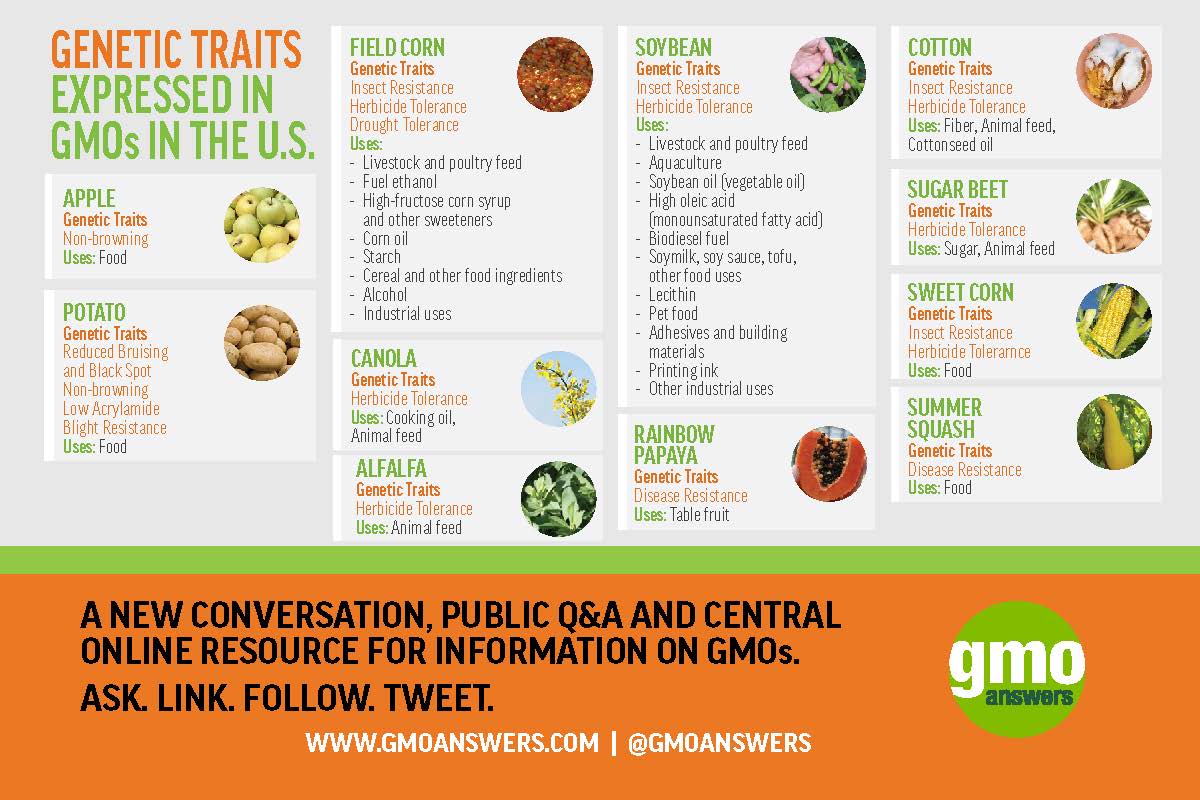Grocery Store GMO Myths: Can you help spot them??
GMO misinformation online and in the media is at its peak, perpetuating anti-scientific claims and fears about GMOs. This recent influx in GMO fearmongering shapes people’s perception on GMOs and can negatively impact their food choices, instilling guilt or shame in choosing to purchase foods containing ingredients derived from GMO crops.
However, there’s been an uptick in news coverage calling out that misinformation, like the BBC article “Gluten-free water and other absurd labeling trends” and Parent Magazine’s “5 Food Myths It's Time to Stop Believing.” And now, consumers have started taking a stand.
GMO Answers volunteer expert and chef Jonathan Bardzik busts some of today’s biggest GMO myths in the grocery aisle, like GMO-free salt.
This year alone, consumers have called out Pop Secret, Simply Orange, Dole and Stonyfield Farms directly on social media for GMO fearmongering and anti-science claims. Often, companies might label a food “GMO-free” even when that food doesn’t have a GMO equivalent.
To build on consumer momentum against misinformation and fearmongering, GMO Answers is launching the GMO MythSpotters campaign, encouraging consumers to join the conversation and help bust GMO misinformation. Using the GMO Answers Facebook frame (one of those cool filters that adds text over a photo), we challenge you to capture a video or photo of a bogus GMO claim you find and bust it with the facts!
GMO Answers volunteer expert and chef Jonathan Bardzik kicked off the effort, spotting some of today’s biggest GMO myths in the place where we see them most – the grocery store!
As Jonathan notes, the only regulated label information comes from a product’s nutrition facts areas. Anything on the front of a box outside of that area isn’t regulated, and may or may not be true. It’s mostly just marketing terms.
So, have you seen “GMO-free” pink Himalayan salt at a store near you? How about “GMO-free” water? Neither of those products have genes that could be edited – but Jonathan found both of them at a local grocery store.
Ready to join the movement?
To help identify some of the common myths that are around you, check out our compilation of most common GMO myths and the facts you can use to bust them.
For starters, there are only 10 genetically modified crops commercially available today: alfalfa, apples, canola, corn (field and sweet), cotton, papaya, potatoes, soybeans, squash and sugar beets. So, you may be surprised to find that many products with a non-GMO label do not have a GMO counterpart in the first place. For example, Hunt’s tomatoes are labeled non-GMO, but there are no genetically engineered tomato products on the market today.
Clearly, there is a lot of misinformation out there, so we need your help! Join the conversation and bust some myths today!
